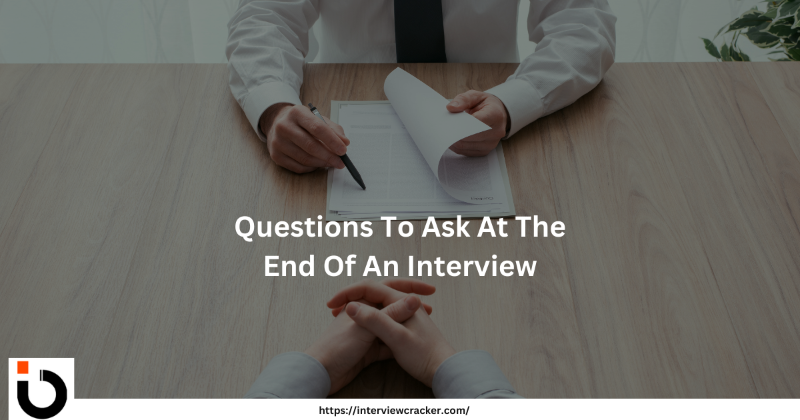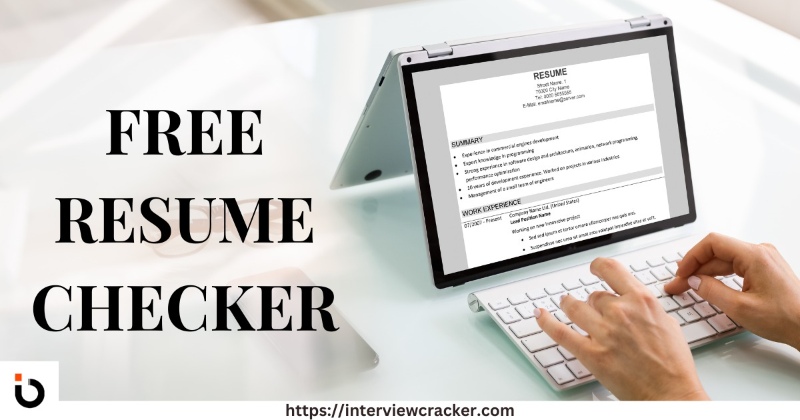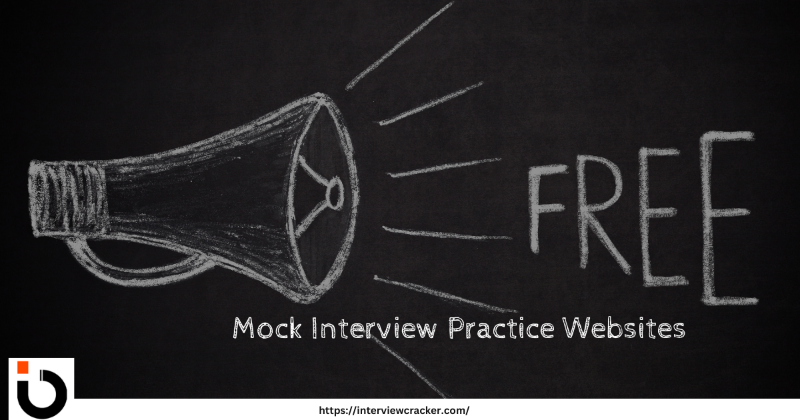You would certainly be given a chance by the interviewers to clarify your doubts or ask any questions at the end of the interview. Don’t miss this opportunity. Take advantage and do ask questions. CNBC says, asking questions is important but the key is to ask the right kind of questions. What you have to keep in mind is that the questions you ask should be well thought out.
Table of Contents
ToggleTop 5 Important Questions That You Can Ask at The End of An Interview!
1. What do you look for in a top performer so I could get that rating?
Vicki Salemi, a Monster career expert, says while answering one of the Quora questions: One of my favorite interview questions for a candidate to ask is, “At year-end, I want to be rated excellent. What do you look for in a top performer so I could get that rating?” Here’s another one: “How is performance measured? “This question gives you a chance to understand the interviewer’s expectations from you.
2. Will there be an opportunity for my personal growth?
Glassdoor says that When asking this question, you’re looking to key into whether there are opportunities for growth and whether the company has a Learning & Development program.
Related: How to prepare for your job interview
3. Who will I be working with? What will my team and boss look like?
This question is a MUST! Says the interviewguys. The last thing you want to do is get stuck with a bunch of people you can’t stand. By asking this question to the interviewer you’re showing that you’re serious about doing the job right. It’s also a great way to get a bit of information about your supervisor.
4. What do you like the most about working with this company?
TheCut says you can learn a lot by the way people respond to this question you will get a fair idea about the company culture, team, learning, and employee satisfaction by listening to the interviewer’s answer this will help you to make up your mind while selecting jobs.
Related: Questions not to ask in an interview
5. What are the next steps in the interview process?
According to presume, asking about the next steps shows you are optimistic and want the job. Asking about the next steps also helps with determining the follow-up process, so that you don’t bother them unnecessarily. you may ask whom should I contact to do a follow-up, can I have their number? All the questions are intended to create a bright future and it will also make the employers realize that you are inquisitive and fully spirited with a keen desire to improve and learn. This is what employers seek from their workers.
Related: How to Face an Interview
50 Sample Smart Questions to Ask at The End of a Job Interview:
50 smart questions to consider asking at the end of an interview. Keep in mind that you don’t need to ask all of them; choose the ones most relevant to the job and company:
Company and Culture:
- Can you describe the company culture here?
- What values and qualities do you look for in employees?
- How does this company support professional development and growth?
- Can you tell me more about the team I’ll be working with?
- What is the company’s approach to diversity and inclusion?
Job Role and Expectations:
6. What are the key responsibilities and expectations for this role?
7. How does success in this role look, and how is it measured?
8. Can you describe a typical day or week in this position?
9. Are there opportunities for advancement within this role?
10. What challenges might I face in this position?
Team Dynamics and Collaboration:
11. How does the team collaborate and communicate with each other?
12. Are there opportunities for cross-functional projects or teamwork?
13. What is the leadership style of the immediate supervisor?
14. How does this role contribute to the overall team’s success?
15. Can you provide examples of recent projects the team has worked on?
Company Performance and Growth:
16. What are the company’s short-term and long-term goals?
17. How has the company performed in recent years?
18. Are there any upcoming changes or developments I should be aware of?
19. What do you see as the biggest opportunities and challenges for the company?
Work-Life Balance and Expectations:
20. How does the company support work-life balance for employees?
21. What is the typical work schedule for this position?
22. Are there any expectations for overtime or remote work?
23. How does the company handle employee wellness and burnout prevention?
Training and Onboarding:
24. Can you provide information about the onboarding process for new employees?
25. Will there be training or mentorship available for this role?
26. What resources are available for professional development?
27. How does the company ensure employees stay updated with industry trends?
Performance Feedback and Evaluation:
28. How often are performance reviews conducted, and what is the process?
29. What opportunities exist for ongoing feedback and improvement?
30. Can you tell me about the company’s approach to recognizing and rewarding outstanding performance?
31. How do you support employees in areas where improvement is needed?
Company’s Response to Market Changes:
32. How has the company adapted to recent market changes or economic challenges?
33. What strategies does the company have in place to remain competitive?
34. Can you discuss the company’s approach to innovation and staying ahead in the industry?
Client and Customer Relationships:
35. How does the company build and maintain relationships with clients or customers?
36. Are there opportunities for employees to interact with clients or customers?
37. Can you provide examples of successful client interactions or projects?
Personal Growth and Development:
38. What opportunities exist for continuing education or advanced training?
39. How does the company support employees’ professional goals?
40. Are there any company-sponsored events or conferences for networking and skill-building?
Technology and Tools:
41. What software or technology tools are commonly used in this role?
42. Is there room for employees to suggest or adopt new tools for efficiency?
43. How does the company stay updated with the latest industry-specific technology?
Workplace Challenges and Solutions:
44. Can you share examples of challenges employees in this role have faced and how they were overcome?
45. How does the company encourage employees to contribute ideas for process improvement?
46. What resources are available to help employees overcome work-related challenges?
Community Involvement and Social Responsibility:
47. Does the company participate in community or charity initiatives?
48. How does the company contribute to social responsibility and sustainability?
49. Can you tell me more about the company’s philanthropic efforts?
50. Are there opportunities for employees to get involved in community outreach?
These questions demonstrate your interest in the role and the company while providing valuable insights into the position and organization. Select questions that align with your specific interests and concerns for a more focused discussion at the end of your interview.
Interview interactions reflect broader hiring strategies that HR teams use to assess role fit, decision-making ability, and alignment with organizational expectations.
HR & Hiring: Global Workforce Strategy, Compliance, and Talent Management
Frequently Asked Questions
Why is It Important to Ask An Interviewer At Least One Question At The End of An Interview?
Asking at least one question at the end of an interview is important because it
- Demonstrates your interest in the role and the company.
- Shows that you’ve done your research and are engaged in the interview.
- Provides an opportunity to gain valuable insights about the job and company culture.
- Leaves a positive impression on the interviewer.
- Can help clarify any uncertainties you have about the role or company.
- Engages the interviewer in a two-way conversation, making the interview more interactive.
- Contributes to building rapport and a positive candidate experience.
So, at the end of the interview, you should ask questions to leave a positive image of you on the interviewer.
How to End an Interview on a Positive Note?
To end an interview on a positive note, follow these steps:
- Express Gratitude: Thank the interviewer for their time and the opportunity to interview for the position. A simple “Thank you for taking the time to meet with me today” is a good start.
- Show Enthusiasm: Reiterate your interest in the position and the company. You can say something like, “I’m even more excited about the opportunity after our discussion today.”
- Ask About Next Steps: Inquire about the timeline for the hiring process or when you can expect to hear back. This shows your eagerness to move forward and allows you to plan accordingly.
- Request Contact Information: If you don’t already have it, ask for the interviewer’s contact information or business card for follow-up purposes.
- Offer a Firm Handshake: If you’re in person, a confident handshake can leave a positive impression. In virtual interviews, a polite nod and smile suffice.
- Maintain Professionalism: Be sure to maintain a polite and professional demeanor until you have left the interview premises or ended the virtual call.
- Send a Thank-You Email: After the interview, send a personalized thank-you email to express your appreciation, reiterate your interest, and briefly mention key points from the interview. This demonstrates your professionalism and keeps you fresh in the interviewer’s mind.
Ending an interview on a positive note helps leave a lasting impression and increases your chances of progressing to the next stage in the hiring process.
How to End an Interview as the Interviewee?
You can close an interview by
- thanking the interviewer,
- expressing interest,
- asking about the next steps, and
- maintaining professionalism.
How to End an Interview as the Interviewer?
End an interview as the interviewer by
- summarizing key points,
- asking if the candidate has any questions,
- explaining the next steps, and
- thanking the candidate for their time.
Is it Bad Not to Ask Questions At The End of An Interview?
Yes, not asking questions at the end of an interview can be seen as a lack of interest or engagement, potentially harming your chances of getting the job. It also misses an opportunity to learn more about the role and company. So make sure you ask a few questions at the end of the interview.
What Two Elements Should be Included at The End of an Interview?
Two essential elements that should be included at the end of an interview, whether you are the interviewer or the interviewee, are:
- Questions and Clarifications: This is an opportunity for the interviewee to ask any remaining questions about the role, company, or the interview process. It’s also a chance for the interviewer to seek clarification on any points discussed during the interview.
- Next Steps: Both parties should discuss what comes next in the hiring process. If you’re the interviewer, you should inform the candidate about the expected timeline for decisions and when they can anticipate hearing back. If you’re the interviewee, you can inquire about the next steps in the process or when you can expect feedback.
These two elements help ensure that both parties have a clear understanding of the interview’s outcomes and what to expect moving forward, contributing to a more productive and transparent interview process.
End an interview as the interviewer by summarizing key points, asking if the candidate has questions, explaining the next steps, and thanking the candidate for their time.
Conclusion
The employer wants to see how keen are you to join the company, once you clear the technical round. Do research about the company and collect all important data/ news available in the public domain. By doing this you appear more committed as a candidate, and it will give you better insight into your next role.




